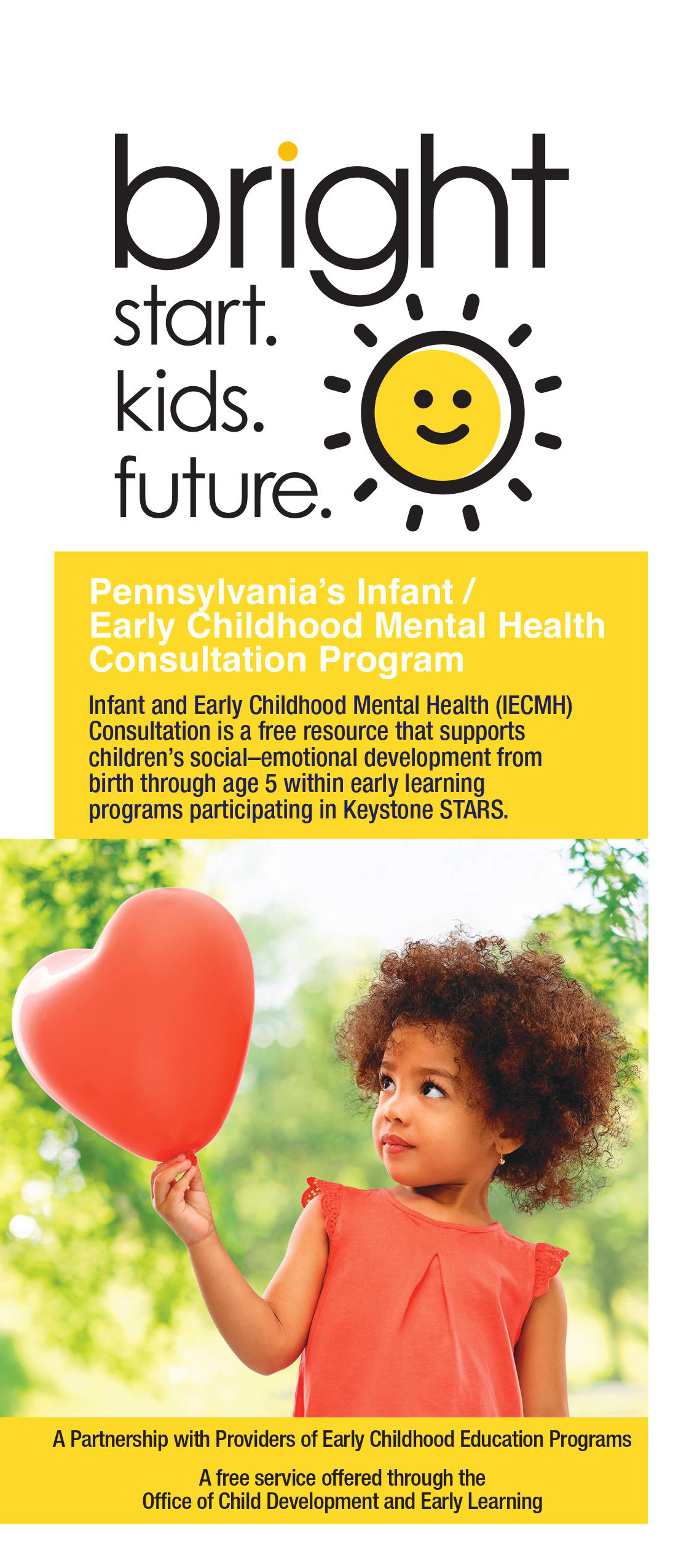 Created in 2007 by the Pennsylvania Office of Child Development and Early Learning (OCDEL), The Pennsylvania Key implements the work and supports the policies developed and managed by OCDEL. Learn More. >
Created in 2007 by the Pennsylvania Office of Child Development and Early Learning (OCDEL), The Pennsylvania Key implements the work and supports the policies developed and managed by OCDEL. Learn More. >As professionals, we often focus on children’s physical growth and learning milestones. But what about mental health? It’s a topic that often gets overlooked – especially in very young children.
The information on this webpage will help you understand how to nurture a child’s mental health by supporting their social-emotional development.

Mental health can be a sensitive topic, but it’s important to talk about. That’s because everyone has mental health—even babies—and the foundation for lifelong mental health is set in the early years.
Children’s social-emotional development begins at birth with the relationships and experiences they have right from the beginning. With secure and loving relationships and positive experiences, children develop a foundation of mental health that supports them throughout their lives.
Social-emotional skills allow children to make friends, care for others, manage their emotions and resolve conflict peacefully. Actively supporting children to develop these skills will not only reduce challenging behavior but will help you build stronger relationships with families.
PAIECMH@pakeys.org
844-569-7253 (toll free)